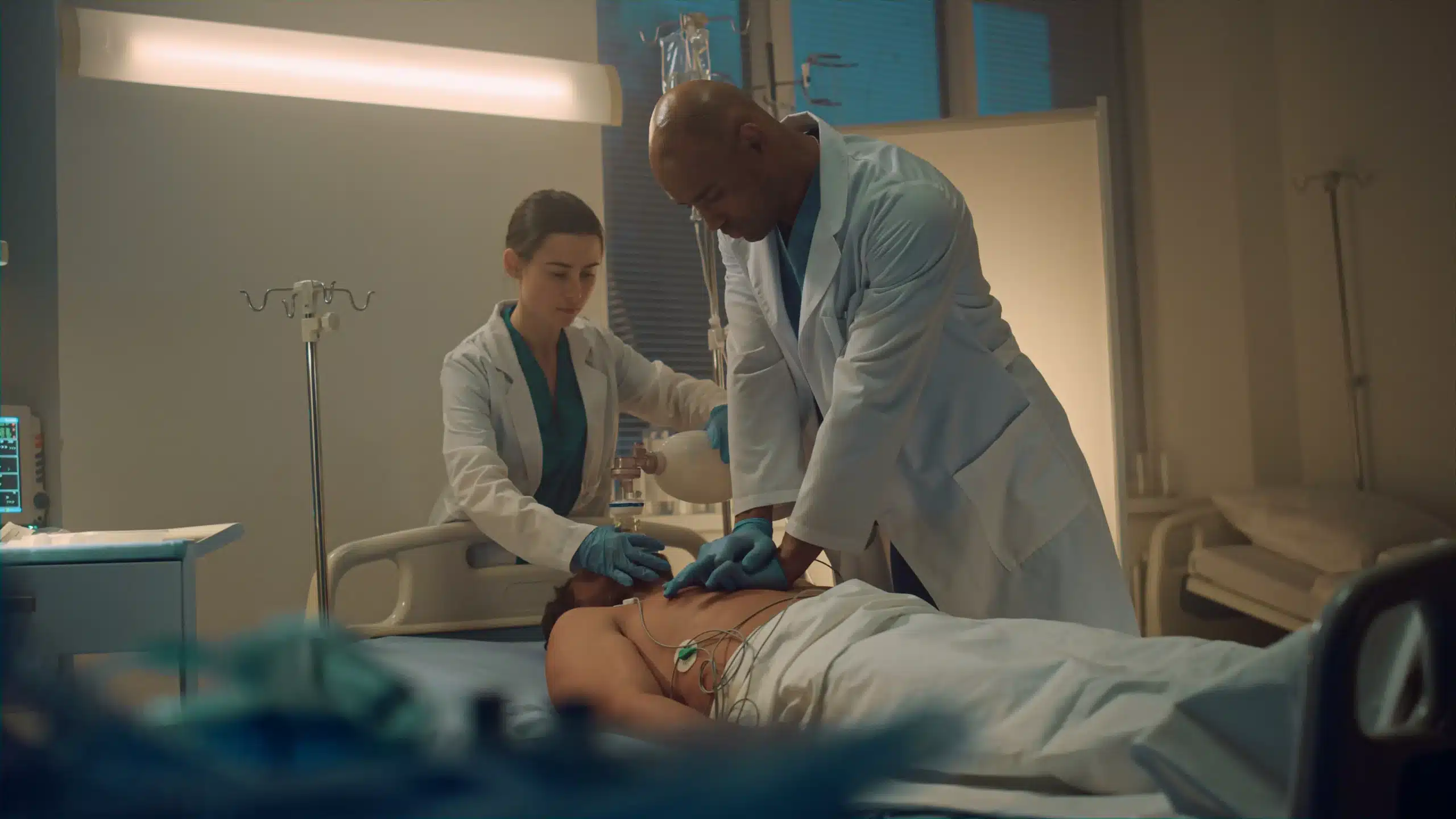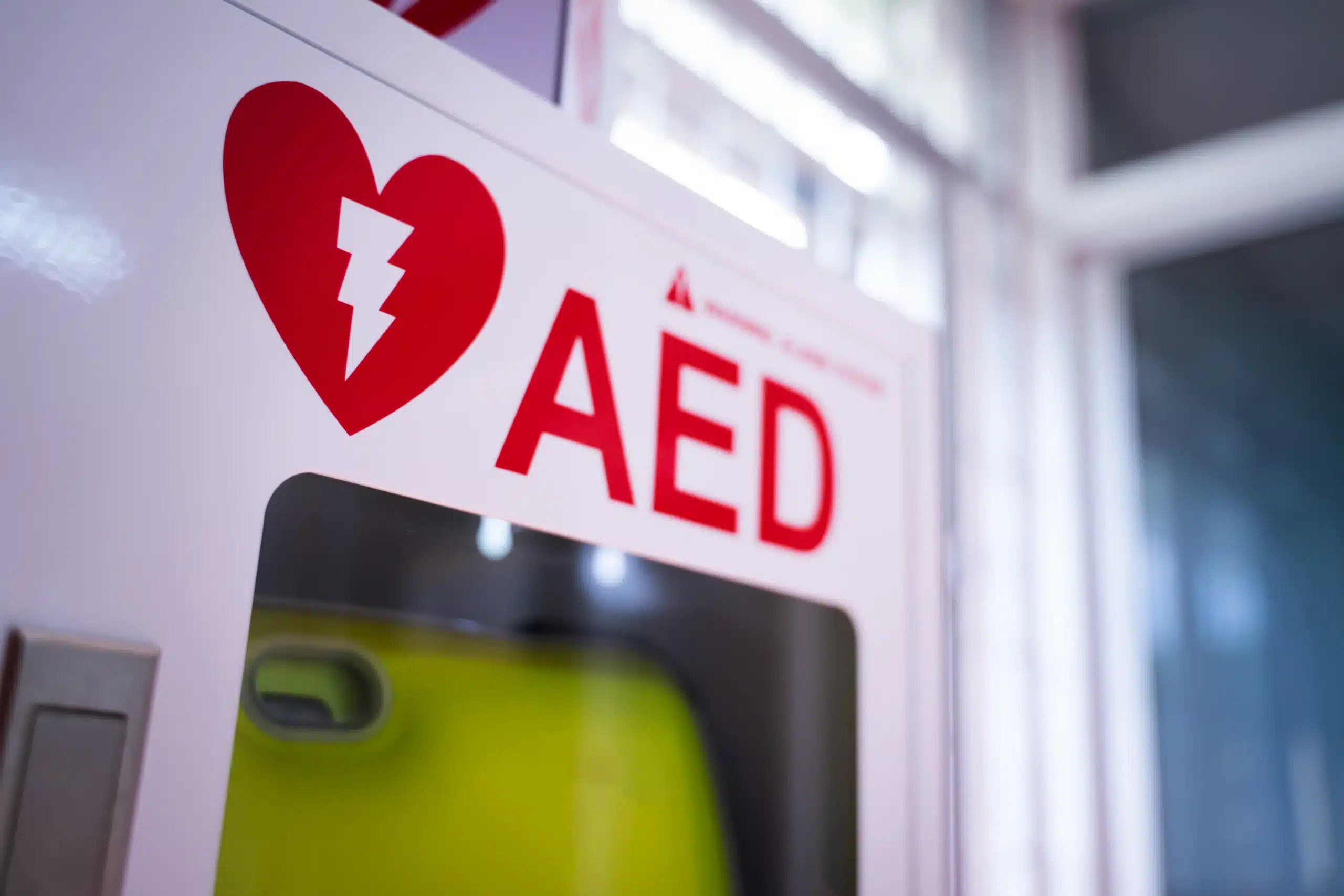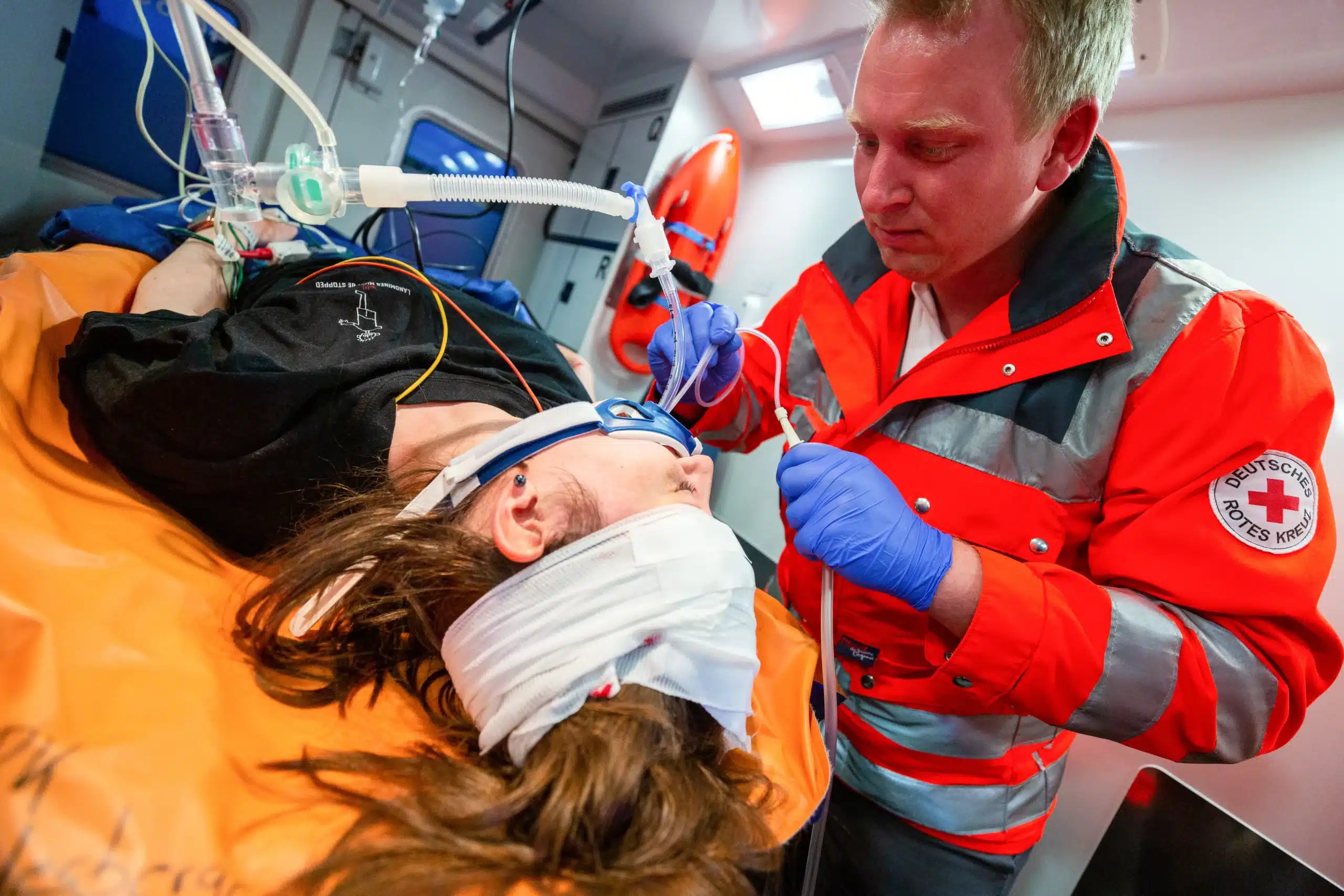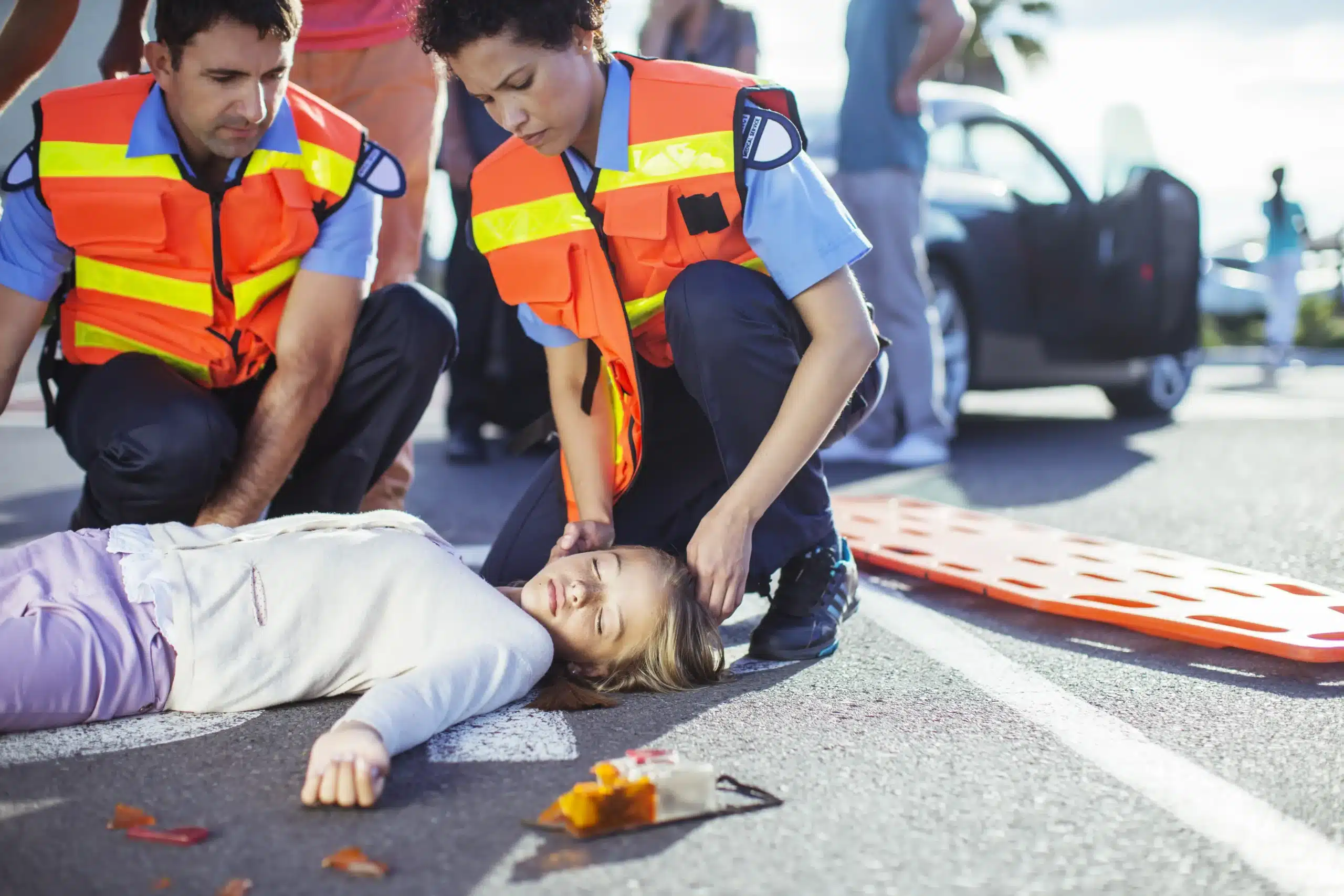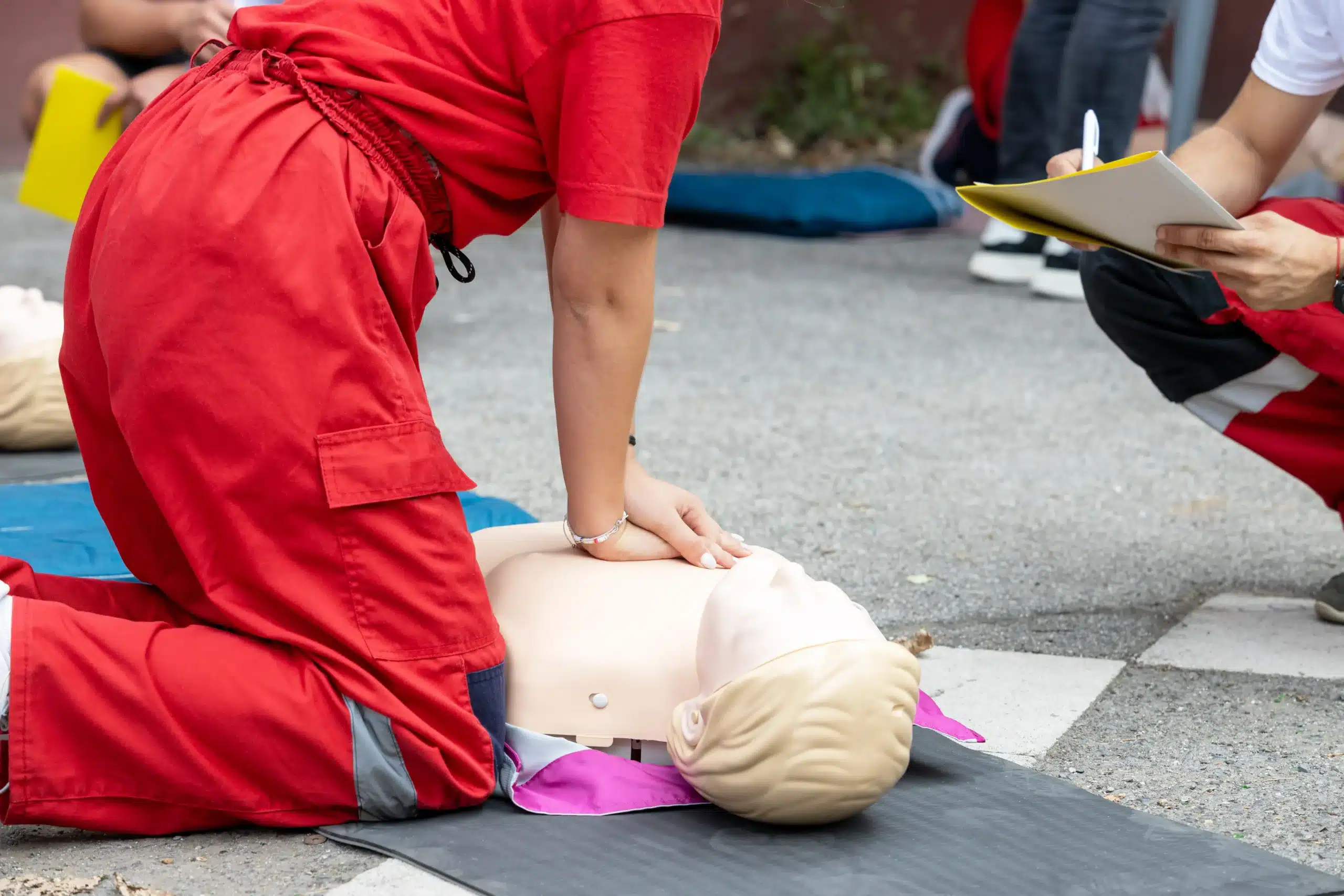Running a daycare involves countless responsibilities, but none are more important than the safety of the children. CPR training equips daycare providers with the life-saving skills needed to respond effectively in emergencies. This comprehensive guide explores the world of CPR classes for daycare, covering everything from the legal requirements to the specific techniques you’ll learn. We’ll also discuss the different types of training available, how to choose a reputable provider, and the long-term benefits of investing in this essential training. Whether you’re just starting your daycare journey or looking to refresh your skills, this article will provide valuable insights into the importance of CPR certification.
Key Takeaways
- CPR and first-aid training are vital for daycare providers: These skills empower you to respond effectively to emergencies, meeting legal requirements and reassuring parents about their children’s safety. Seek out training that covers infant, child, and adult CPR and first aid.
- Choose a CPR course that fits your needs: Consider in-person or online formats, course content, hands-on practice, and provider credibility. Ensure the course aligns with your state’s licensing requirements and covers relevant specialized topics like choking prevention and AED use.
- Stay current with CPR guidelines and best practices: Renew your certification every two years and seek continuing education opportunities. Regularly review resources from reputable organizations like the American Heart Association and the American Red Cross to stay informed about the latest recommendations.
Why is CPR Training Crucial for Daycare Providers?
As a daycare provider, you play a vital role in the lives of the children you care for. You’re responsible for their daily activities and their safety, especially in emergencies. That’s why CPR training is so crucial in childcare. Knowing how to respond quickly and effectively can make all the difference.
What are the unique risks in childcare settings?
Think about a typical day at your daycare. Children are constantly exploring, playing, and sometimes, putting themselves in unexpected situations. Choking hazards, sudden allergic reactions, and accidental injuries are always a possibility. CPR training gives you the skills to handle these emergencies and respond confidently to breathing emergencies and cardiac arrest in infants and children. These skills go beyond basic first aid, giving you the knowledge to assess a situation, perform chest compressions, and provide rescue breaths. CPR classes tailored to the unique needs of infants and children are essential for every childcare provider. For specific training requirements in your state, check out Child Care Aware.
What are the legal requirements and liability considerations?
Beyond the moral reasons, there are also legal and liability considerations. Many states require daycare providers to have current CPR and first-aid certifications. These regulations highlight how important these skills are for maintaining a safe environment. Being certified not only fulfills these requirements but also shows parents you’re prepared for anything, adding an extra layer of protection for your business. CPR certification courses, like those offered by Safety Training Seminars, cover essential first-aid practices and can help you develop emergency action plans. This preparation can protect you from liability and ensure you’re ready for any situation. Accidents can happen, even when you’re being careful. Being prepared is the best way to protect the children and your business. Learn more about our low price guarantee and find a class that fits your needs.
CPR Classes for Daycare Staff
As a daycare provider, you play a vital role in the lives of the children in your care. Their safety and well-being are your top priorities, and having current CPR and first-aid training is essential. This isn’t just a good idea—it’s often a legal requirement and a crucial part of maintaining a safe and responsible childcare environment. This section will guide you through the essential aspects of CPR training designed for daycare staff.
Infant and Child CPR Techniques
Infants and children have different physiological responses than adults, so CPR techniques must be adapted accordingly. Standard adult CPR can be harmful to small children. That’s why specialized training is so important. A daycare-focused CPR course will cover the proper methods for infant and child CPR, including chest compressions, rescue breaths, and airway management. You’ll learn how to assess a child’s condition quickly and accurately and how to perform CPR effectively in various emergencies. These courses often emphasize choking prevention and response, as choking is a significant hazard for young children. ProTrainings offers resources that highlight the importance of age-specific CPR training for childcare providers. For convenient and affordable options in Sacramento, check out our CPR certification classes.
First Aid and AED Training for Childcare
CPR training for daycare providers goes hand-in-hand with comprehensive first-aid training. You’ll learn how to treat common childhood injuries like cuts, scrapes, burns, and allergic reactions. Your training will also cover how to recognize and respond to sudden illnesses, such as seizures and febrile convulsions. Additionally, many CPR courses for daycare providers include training on how to use an automated external defibrillator (AED). Knowing how to use an AED can be life-saving in the event of a cardiac emergency. CPR Classes Providence emphasizes the combined importance of CPR and first-aid training for childcare providers in handling life-threatening emergencies. We offer comprehensive CPR and first-aid training in Sacramento.
Specialized Courses for Daycare Settings
Beyond the basics of infant and child CPR and first aid, some courses delve into more specialized topics relevant to daycare settings. These might include recognizing and responding to signs of child abuse or neglect, administering medication safely, and managing emergencies related to specific medical conditions like asthma or diabetes. The American Academy of Pediatrics (AAP) offers recommendations for CPR and first-aid training for childcare providers, including specialized training for those caring for infants, children, or adolescents. Choosing a course that covers these specialized topics can further enhance your preparedness and provide you with the confidence to handle a wider range of situations. Consider our specialized courses available in the Sacramento area by visiting our website.
Certification Requirements and Regulations
As a daycare provider, you’re entrusted with children’s well-being, making safety paramount. Understanding CPR certification requirements and regulations is key to a safe and nurturing environment. This section clarifies these crucial aspects.
State and Local Regulations for Daycare Providers
Each state sets its own training requirements for childcare providers. These vary, but common themes include CPR, first aid, and safe sleep practices. Some states mandate specific training hours in pediatric CPR, first aid, and AED use. Compliance with these regulations is fundamental for legally operating a daycare and ensuring children’s safety. Always check with your state’s licensing agency for specific requirements. Resources like Child Care Aware® of America can help you find this information.
Beyond state regulations, local authorities may have additional requirements. These could include training on recognizing and reporting child abuse or adhering to local emergency procedures. Staying informed about both state and local regulations is essential for maintaining a compliant and safe daycare. Resources like DaycarePulse.com offer helpful information. Running a daycare involves significant responsibility, from ensuring children’s physical safety to fostering their development.
Certification Validity and Renewal
CPR certifications typically expire, often two years from the issue date. The American Academy of Pediatrics (AAP) recommends childcare providers refresh their CPR and first-aid training at least every two years. This ensures your skills and knowledge are current for responding effectively in emergencies. Regular renewal also demonstrates your commitment to high-quality care.
Renewing your certification usually involves a refresher course covering essential techniques and updates to CPR guidelines. Staying current with the latest recommendations is vital for providing the best possible care. CPR Louisville emphasizes the importance of CPR training for childcare workers, highlighting its role in emergencies and building trust with parents. Maintaining a valid CPR certification fulfills legal requirements and demonstrates your dedication to children’s safety.
Choosing the Right CPR Course for Your Daycare
Finding the right CPR course for your daycare involves several key considerations. From understanding the different training formats to verifying a program’s credibility, this guide will help you make an informed decision to keep the children in your care safe.
In-Person vs. Online Training
When selecting a CPR course, think about the format that best suits your team’s needs and learning styles. Many online CPR certification courses offer flexibility, which can be helpful for busy daycare providers. However, it’s essential to confirm whether online certification meets your state’s licensing requirements. The Red Cross, for example, offers a fully online Child and Baby First Aid/CPR/AED class, but other providers may require an in-person skills session. Check with your local licensing agency to ensure you choose a compliant course. Some providers, like ProTrainings, also suggest checking with families or agencies for specific requirements.
Course Content and Hands-on Practice
The specific content of the CPR course is crucial for preparing you to handle emergencies effectively. Look for a CPR certification that covers infant, child, and adult CPR, as well as First Aid training. While your focus is on children, emergencies can involve adults as well. Comprehensive training ensures you’re prepared for any situation. ProTrainings emphasizes the importance of including infant, child, and adult CPR in your training. Hands-on practice is another essential element of effective CPR training. While online courses offer convenience, in-person training often provides more opportunities for realistic practice and feedback from certified instructors. This can significantly improve your confidence and competence in performing CPR. CPR Classes Providence highlights how CPR training equips childcare providers with essential lifesaving skills.
Verifying Course Credibility and Accreditation
Finally, always verify the credibility and accreditation of any CPR course you’re considering. Many states require CPR and First Aid certifications for childcare licensing, so it’s vital to choose a recognized provider. Organizations like the American Heart Association (AHA) and the American Red Cross offer widely accepted certifications. Check with your state’s licensing board to confirm which certifications they recognize. Choosing a credible provider ensures your certification meets regulatory requirements and equips you with the skills to provide high-quality care.
Cost and Value of CPR Classes
Investing in CPR training for your daycare staff is a smart move, but understanding the costs involved is essential for budgeting. Let’s break down the factors influencing CPR class pricing and explore the long-term value this training brings.
Factors Affecting Pricing
CPR certification costs vary widely, from around $15 for basic online courses to upwards of $170 for more advanced, in-person training. This range reflects the different levels of certification, course content, and the format of the class. Basic CPR and first-aid certification might be sufficient for some, while others may require specialized training like Pediatric Advanced Life Support (PALS) or Basic Life Support (BLS). Location also plays a role, as prices can differ between training providers and regions. Here in Sacramento, Safety Training Seminars is committed to offering the most affordable CPR classes in the county.
Long-Term Benefits of Specialized Training
While cost is a factor, consider the invaluable benefits of comprehensive CPR training. Equipping your staff with these skills goes beyond simply checking a box on a licensing requirement. It empowers them to confidently respond to emergencies, potentially saving lives. This provides peace of mind to parents, strengthening your reputation as a responsible and caring childcare provider. Specialized training, such as our EMSA Child Care Health & Safety course, further enhances their preparedness by covering essential preventive health and safety practices relevant to the daycare environment. The American Academy of Pediatrics (AAP) recommends that all childcare providers maintain current CPR and first-aid certification, highlighting the ongoing importance of this training.
Group Discounts
If you’re looking to train multiple staff members, explore group discounts. Many providers, including Safety Training Seminars, offer price reductions for groups of five or more. This can make training more accessible and affordable for your daycare, ensuring everyone on your team is prepared to handle emergencies. Contact us directly to learn more about our group rates and how we can tailor a training program to meet your specific needs.
What to Expect During CPR Training
CPR training for daycare providers covers essential skills, helps you develop emergency action plans, and addresses common misconceptions about CPR. Let’s explore what you can expect.
Essential Skills Covered in Daycare-Focused Courses
Daycare-focused CPR courses equip providers with the skills to respond effectively to life-threatening emergencies involving infants and children. You’ll learn to recognize the signs of cardiac arrest and respiratory distress, perform CPR on infants and children, and relieve choking. These courses also cover basic first aid for common childhood injuries, like cuts, burns, and allergic reactions. This specialized training gives you the confidence to act quickly and appropriately in various emergencies. Many courses, like those offered by Safety Training Seminars, tailor their CPR training to meet the specific needs of infants and children, ensuring you’re well-prepared for the unique challenges of a childcare setting. CPR classes provide childcare providers with all the necessary skills to handle emergencies.
Develop Emergency Action Plans
CPR training often involves developing emergency action plans specific to daycare settings. You’ll learn to assess potential hazards, create evacuation routes, and establish communication protocols with staff and emergency responders. Developing a comprehensive emergency action plan is crucial for minimizing risks and ensuring a swift, organized response during a crisis. This preparation helps you stay calm and focused under pressure, allowing you to provide the best possible care. Consider factors like the age of the children and the layout of your daycare when creating your plan.
Common CPR Training Misconceptions
CPR training also addresses common misconceptions about CPR and first aid. For example, some believe CPR always involves mouth-to-mouth resuscitation, but hands-only CPR is often sufficient and can be just as effective. Training clarifies these misconceptions, providing accurate information and promoting effective life-saving techniques. Understanding the facts about CPR empowers you to act confidently and dispel any fears or uncertainties. Debunking these myths ensures you’re equipped with the most up-to-date and reliable knowledge.
Maintaining Your CPR Certification
As a daycare provider, maintaining your CPR certification isn’t just a formality—it’s a critical part of ensuring the children in your care are safe. Regularly renewing your certification shows your ongoing commitment to providing a secure environment. This section covers the renewal process, continuing education, and why staying up-to-date with the latest guidelines matters.
Renewal Process and Continuing Education
CPR certifications are typically valid for two years. Renewing usually involves a refresher course covering core CPR skills, updated guidelines, and best practices. The American Academy of Pediatrics (AAP) recommends childcare providers refresh their training every two years, with at least two hours focused on first aid and CPR. This helps ensure you’re prepared to handle emergencies. Continuing education is also key. Look for opportunities to expand your knowledge beyond the basics. Advanced courses or workshops can offer valuable insights into specific scenarios you might encounter in a childcare setting.
Stay Updated with the Latest Guidelines
Emergency response protocols and best practices are always evolving, so staying informed is essential. Regularly check resources from reputable organizations like the American Heart Association or the American Red Cross for updated guidelines and recommendations. When choosing a CPR training program, confirm it aligns with current guidelines. Consider factors like course content, instructor qualifications, and accreditation. Also, stay informed about changes in regulations or licensing requirements related to CPR and first aid in childcare. Check with your state’s licensing board for the most up-to-date information.
Top CPR Training Providers for Daycare Staff
Finding the right CPR training can feel overwhelming with so many options available. To simplify your search, I’ve compiled a list of reputable training providers catering specifically to daycare staff. Remember to double-check if the certification offered meets your state’s licensing requirements.
American Red Cross
The American Red Cross is a well-known provider of health and safety training. They offer various CPR and first aid courses, including options specifically for childcare providers. Choose from in-person or online blended learning courses, both leading to two-year certifications. They also offer refresher materials to help you maintain your skills.
American Heart Association
The American Heart Association is another leading organization in CPR and first aid training. They provide evidence-based courses for healthcare providers and the general public, including specialized training for childcare professionals. The American Heart Association is often a go-to resource for medical professionals.
Safety Training Seminars
Safety Training Seminars offers affordable CPR and first-aid certification courses in Sacramento. They focus on providing accessible, high-quality training for various healthcare professionals, including those working in childcare. With a low-price guarantee, they ensure you receive excellent value. Serving Sacramento, Roseville, and Rocklin, their courses cover essential life-saving skills tailored to the needs of daycare providers. Explore their BLS, ACLS, and EMSA Child Care Health & Safety courses. They also offer RQI classes and have a low price guarantee.
ProTrainings
ProTrainings offers a variety of online and in-person CPR and first aid courses, including options tailored to the needs of daycare providers. Their training emphasizes practical skills and real-world scenarios, giving childcare professionals the confidence to handle emergencies effectively. Their courses cover infant, child, and adult CPR and first aid skills.
American Health Care Academy
The American Health Care Academy provides online CPR and first aid certification courses designed to meet regulatory requirements. They prioritize affordability and convenience, making training accessible to childcare providers. They offer a comprehensive and convenient solution for childcare providers seeking CPR and first aid certification.
Related Articles
- Pediatric CPR & First-Aid Training in Sacramento – Sacramento CPR Classes
- CPR & First Aid in Sacramento: Your Guide – Sacramento CPR Classes
- Why CPR Is Important in Healthcare
- First Aid Training Sacramento: A Comprehensive Guide – Sacramento CPR Classes
- CPR Courses in Roseville: Your Complete Guide – Sacramento CPR Classes
Frequently Asked Questions
What type of CPR certification do I need as a daycare provider? Most states require daycare providers to have CPR and first-aid certification specifically designed for infants and children. Check with your state’s licensing agency for the exact requirements, as they can vary. Look for courses that include training on AED use and cover common childhood injuries and illnesses.
How often do I need to renew my CPR certification? CPR certifications typically expire every two years. It’s recommended to renew your certification before it expires to maintain a safe and compliant daycare environment. Regular renewal ensures your skills and knowledge are up-to-date.
Are online CPR courses acceptable for daycare licensing? While online CPR courses offer flexibility, they may not always meet state licensing requirements for daycare providers. Some states require an in-person skills assessment component. Always check with your state’s licensing agency to confirm whether a fully online course is acceptable or if a blended learning format (online coursework with in-person skills practice) is necessary.
Where can I find affordable CPR training in Sacramento? Safety Training Seminars offers CPR and first-aid certification courses in Sacramento at competitive prices. They have a low-price guarantee and provide various courses, including BLS, ACLS, and specialized training for childcare providers. They serve Sacramento, Roseville, and Rocklin.
What should I look for when choosing a CPR training provider? Look for a reputable training provider with certified instructors and a curriculum aligned with current guidelines from organizations like the American Heart Association or the American Red Cross. Consider the course format (online, in-person, or blended), the content covered, and whether the certification meets your state’s licensing requirements. Also, check for any available group discounts if you’re training multiple staff members.
